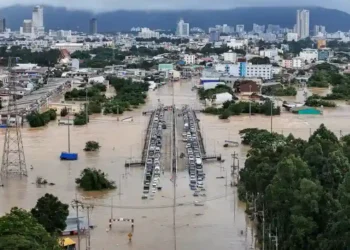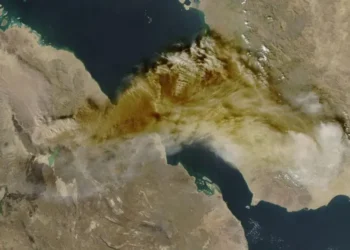Earth’s Hottest Decade on Record as CO2 Levels Hit 800,000-Year High, UN Warns
The past decade was the hottest ever recorded, with 2023 marking the warmest year in history, according to the United Nations’ latest State of the Climate report. The findings reveal that carbon dioxide (CO2) levels in the atmosphere have reached their highest point in 800,000 years, fueling an increasingly unstable climate.
Rising Temperatures and Climate Alarms
The World Meteorological Organization (WMO) report highlights alarming trends:
- The top 10 hottest years on record have all occurred within the last decade.
- Global sea levels are rising as glaciers and ice sheets retreat at record speeds.
- Ocean temperatures are at their highest ever recorded levels.
- Extreme weather events are becoming more frequent and severe.
“Our planet is issuing more distress signals,” said United Nations Secretary-General António Guterres. He emphasized that while limiting global warming to 1.5°C (2.8°F) above pre-industrial levels is still possible, decisive action is needed. “Leaders must step up to make it happen — seizing the benefits of cheap, clean renewables for their people and economies,” he urged.
Human Activity and the Role of El Niño
The report attributes the ongoing climate crisis primarily to human activities, including the burning of fossil fuels like coal, oil, and gas. It also notes that the naturally occurring El Niño weather phenomenon, which formed in June 2023 and lasted for a year, contributed to record-breaking temperatures. In 2024, the world surpassed the 1.5°C limit for the first time in a single year, though scientists measure breaches of this goal over longer periods.
Climate Change Driving Disasters and Displacement
The global heating crisis has triggered a surge in extreme weather events. The report states that 2024 alone witnessed at least 151 unprecedented climate-related disasters, leading to:
- Massive economic losses
- The highest levels of displacement in 16 years
- Worsening global food crises
“This is a wake-up call,” warned Celeste Saulo, WMO Secretary-General. “We are increasing risks to our lives, economies, and the planet.”
Political Roadblocks and Climate Commitments
The report’s warnings come amid political challenges, particularly in the United States, where President Donald Trump has rolled back climate commitments and cast doubt on climate science. The U.S. remains the world’s second-largest current polluter and the largest historical emitter of greenhouse gases. Some fear that weakened climate policies in the U.S. could lead other nations to lower their ambitions as well.
Brenda Ekwurzel, a climate scientist with the Union of Concerned Scientists, pushed back against efforts to dismiss climate science. “The science is indisputable. Attempts to hide climate science from the public will not stop us from feeling the dire impacts of climate change.”
Ugandan climate activist Vanessa Nakate echoed the urgency, stating, “The longer we delay emissions cuts, the worse it will get. Phasing out fossil fuels is not a choice—it is an emergency response to a crisis unfolding before our eyes.”
The Path Forward
With the evidence of climate change clearer than ever, the UN urges governments and industries to take immediate action by:
- Rapidly reducing fossil fuel dependence
- Scaling up renewable energy investments
- Implementing stricter emissions regulations
As extreme weather events escalate and global temperatures continue to rise, experts agree that the time to act is now. Will world leaders rise to the challenge before it’s too late?
This article was rewritten by JournosNews.com based on verified reporting from trusted sources. The content has been independently reviewed, fact-checked, and edited for accuracy, neutrality, tone, and global readability in accordance with Google News and AdSense standards.
All opinions, quotes, or statements from contributors, experts, or sourced organizations do not necessarily reflect the views of JournosNews.com. JournosNews.com maintains full editorial independence from any external funders, sponsors, or organizations.
Stay informed with JournosNews.com — your trusted source for verified global reporting and in-depth analysis. Follow us on Google News, BlueSky, and X for real-time updates.














